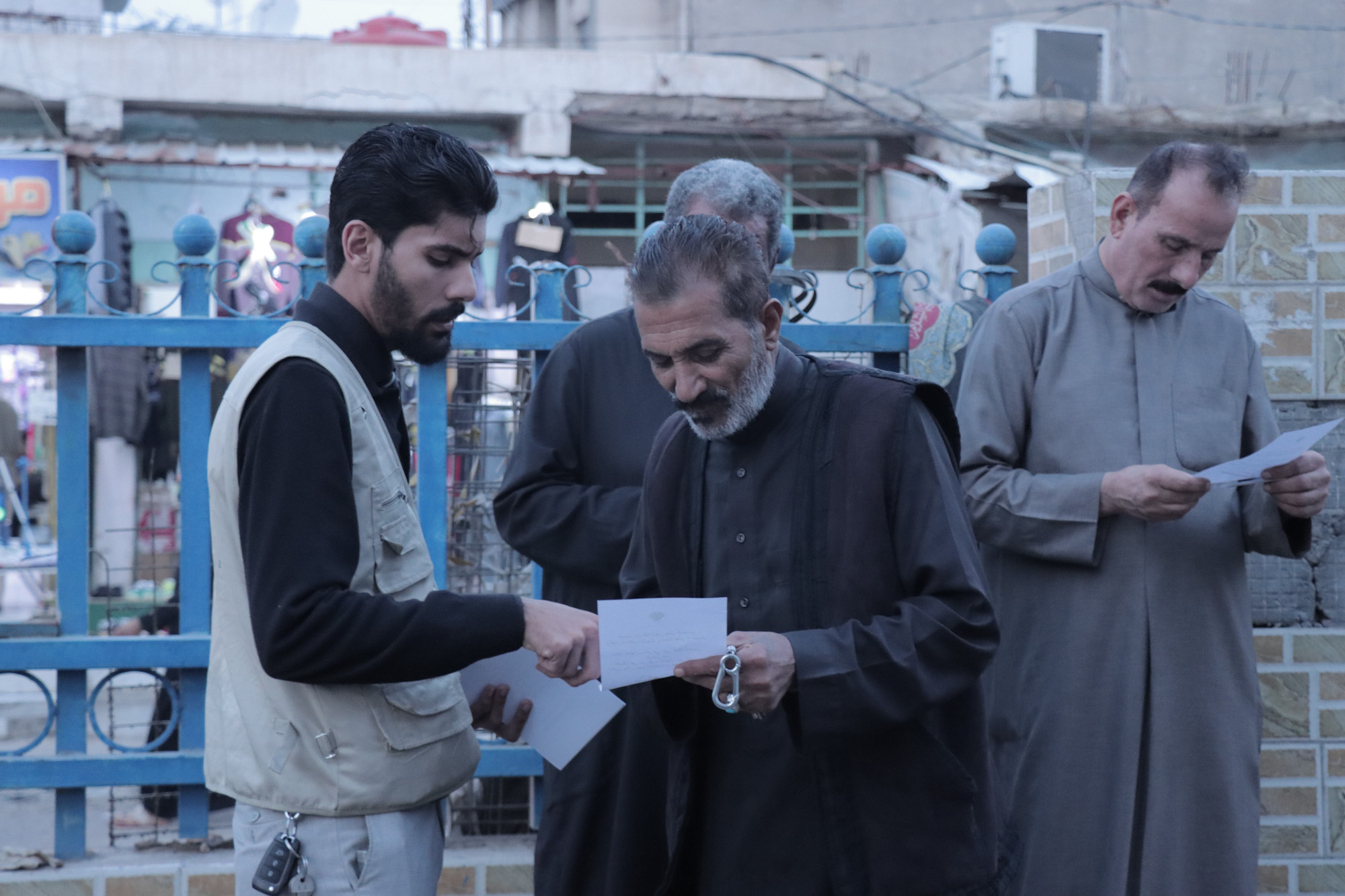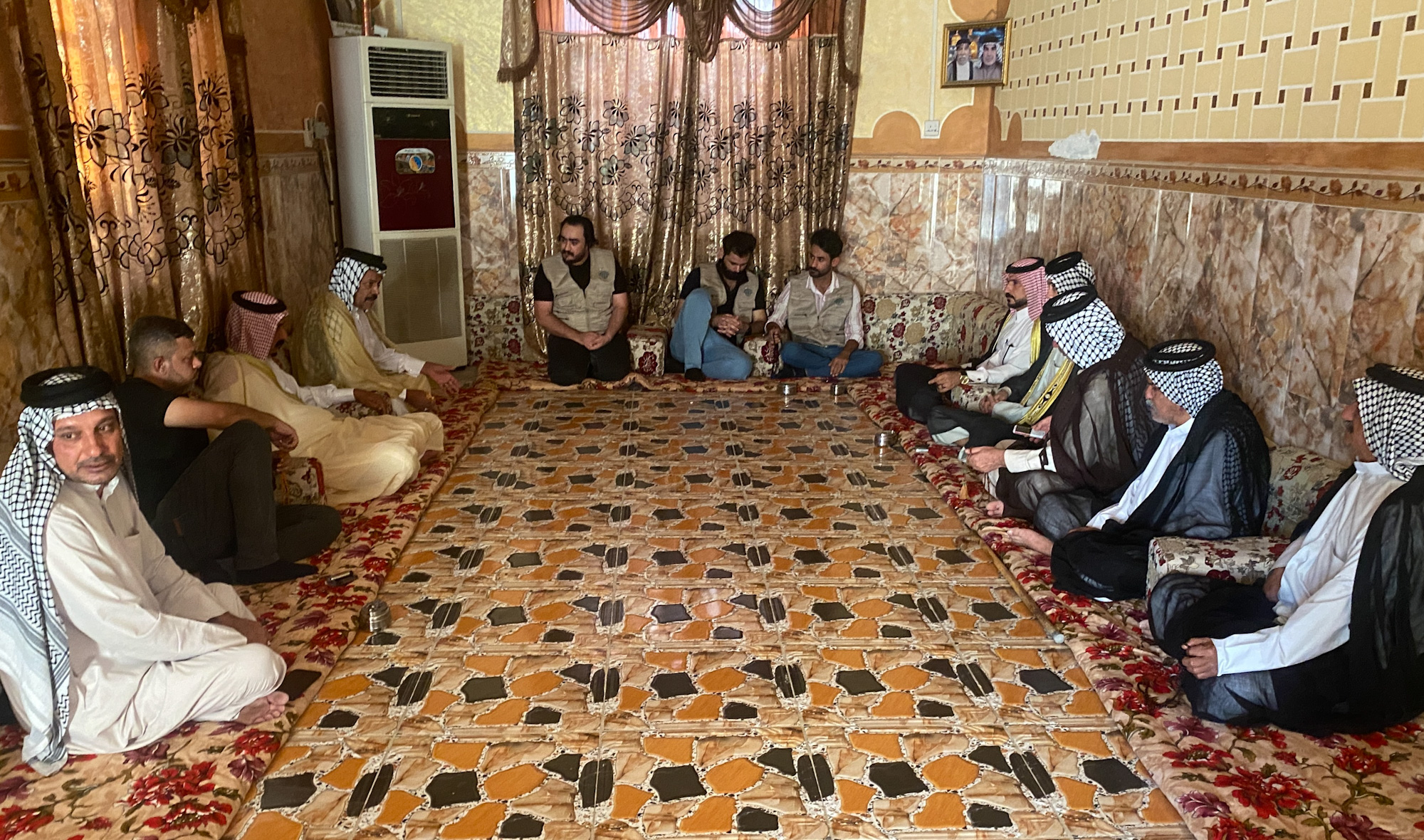Civic Activists Build Bridges Between Communities and Decision Makers in Basra

Led by passionate youths with minimal prior civic or political experience, the October 2019 nationwide protests in Iraq shifted the country’s political atmosphere, thereby transforming the pattern of Iraqi political participation. At the center of the protests, which became known as the Tishreen movement, youth channeled civil discontent and growing patriotism into active mobilization against a kleptocratic system and corrupt political elites. Following the Tishreen movement’s boycott campaigns, the 2021 early parliamentary elections held by the government resulted in one of the lowest voter turnouts since 2003.
Capitalizing on the momentum, the International Republican Institute (IRI) in Iraq, in partnership with the Consortium for Elections and Political Process Strengthening (CEPPS) and through funding from the United States Agency for International Development (USAID), started to work with a cohort of 14 local civic activists across the five provinces of Baghdad, Basra, Dhi Qar, Najaf, and Ninawa. IRI Iraq supports the network of youth activists in their quests to facilitate sustainable change, implement issue-based advocacy campaigns on citizen-selected issues, build bridges between their communities and decision-makers, and remain active community members who continue to protest and advocate for constructive action.
In Basra, a 27-year-old civic activist named Mohammed, , has channeled his background in political participation into constructive civic action to spread awareness of drug usage within the local community with the support of the International Republican Institute (IRI) and the Consortium for Elections and Political Process Strengthening (CEPPS). Due to the region’s geographic proximity near Iran, one of the world’s largest drug-producing countries, Basra Governate is Iraq’s leading city for drug use and addiction rates. This correlates with Iraq’s nation-wide trends of increased drug and narcotic abuse since 2003. Basra hosts three active rehabilitation centers with 44 available beds; however, these institutions are rendered ineffective and insufficient due to a shortage of staff and equipment. Recognizing the cycle of drug abuse and lack of treatment resources in Basra, Mohammed decided to involve the community in discussions, campaigns, and activities to raise awareness around drug abuse and addiction prevention.
Utilizing teachings from three skill-building workshops conducted by IRI, Mohammed launched a multi-method campaign to inform his community about drug abuse and de-stigmatize addiction. The first approach utilized face-to-face activities, including a dialogue session, that provided Basra residents a platform to discuss the prevalence of drug use and brainstorm possible solutions that could be implemented to prevent and treat addiction. Facilitation skills learned through CEPPS-sponsored workshops supported Mohammed’s role in the dialogue sessions. These skills were then used to inform, engage, and connect local decision makers, religious leaders, tribal leaders, and legal experts with Basra citizens. In addition, Mohammed and his network distributed flyers promoting the campaign while capitalizing on large public events like the Arbaenee Pilgrimage, a tradition in Shia Islam where millions of Iraqis march toward the city of Karbala.

Acknowledging the increasing use of social media among Iraqi youth, Mohammed also launched an online Instagram campaign titled “Let’s Decide 2023.” In partnership with well-known local youth civic activists, the digital campaign has published educational posts, blogs, and informative pages focusing on the prevention of drug use and encouraging rehabilitation for community members in need of help. Mohammed, who harnessed the bandwidth and power of social media, has been able to reach individuals who are often marginalized and restricted from participating in public spaces, such as women and girls. Among the many activities and publications stemming from “Let’s Decide 2023,” the Instagram page is uniquely designed to connect drug users with young lawyers offering pro bono services to avoid legal consequences or prosecution for possession of narcotics.
Versed in strategic advocacy planning, Mohammed also has compiled a comprehensive policy paper detailing efforts of the campaign and concerns of Basra residents that was shared with local actors, regional decision-makers, and government officials. Taking a bottom-up approach to the dangers of drug use, Mohammed believes that “the issue of drugs is national, it should be addressed in every province as it affects every Iraqi household.” To continue his legacy of inspiring work, Mohammed has organized and registered the team of volunteers with the Directorate of Nongovernmental Organizations so his work can continue to spread and help friends, families, and individuals beyond the Basra Governate.
Mohammed’s incredible journey as a passionate civic activist and dedicated leader of drug de-stigmatization across Iraq can be followed by visiting the Let’s Decide 2023 Instagram Page.
This article is part of a series highlighting the work of five inspiring and capacity-building initiatives the young civil activists are leading across Iraq to better their communities and foster significant change from the bottom up.
Top